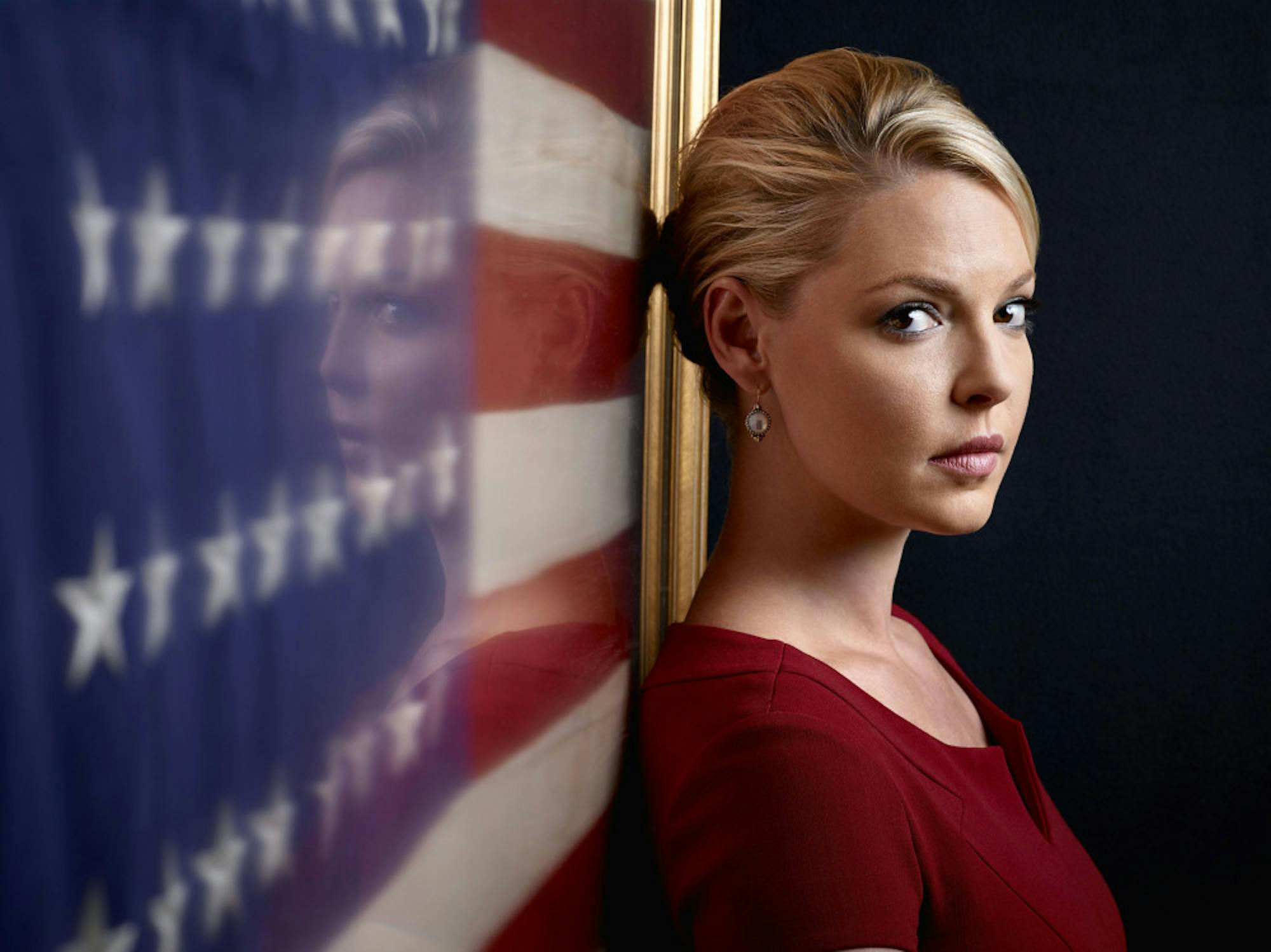Katherine Heigl, the actress formerly known as Izzie Stevens, has made her return to television. NBC’s newest drama, “State of Affairs,” which premiered on Nov. 17, stars Heigl as the series’ main character, Charleston (Charlie) Tucker.
Charlie and her coworkers at the Central Intelligence Agency (CIA) work as high-profile briefers. Every morning (apparently at the CIA the early shift starts at 2 a.m.) the briefers assemble “The Book.” The Book is an up-to-the-minute report on the biggest security threats around the globe, and it is distributed by the briefers to top military and political personnel. Charlie’s “customer” is none other than the President of the United States herself, Constance Payton (played by Alfre Woodard). The briefers’ job, though only loosely defined by the show, includes informing these leaders on The Book's contents and then giving limited advice.
Based only on its high-stakes premise and cloak and dagger vibe, it would be easy to file “State of Affairs” under “prime-time political dramas” right next to “Scandal” (2012 - present) without giving the classification a second thought.
However, already “State of Affairs” defies expectations of the archetype. For instance, the pilot features a few energetic scenes of Charlie & Co. sitting at desks and suffering through the morning work grind. But while these moments appear to establish the familiar team dynamics that structure many series -- including genre legend “The West Wing” (1999 - 2006) -- this friendly atmosphere soon evaporates.
In under 90 minutes of airtime, internal upheaval brings in new CIA leadership, Charlie begins receiving threatening text messages relating to the terrorist attack which killed her fiancé, Aaron (Mark Tallman), who also happened to be President Payton’s son, and character after character chucks morals and ethics to the wayside in favor of ruthless pragmatism.

By the end of episode two, bluntly titled “Secrets and Lies,” Charlie can’t be sure who to trust -- and, undoubtedly, audience members won’t know what to think. One thing, however, is clear: “State of Affairs” shirks the uplifting, patriotic tone to which other series of its kind cling. Yet, paradoxically, flashbacks to Charlie’s life with Aaron and her sentimental conversation with an undercover asset in “Secrets and Lies” prevents “State of Affairs” from following in the cynical footsteps of “House of Cards” (2013 - present).
As it stands, the series is neither “here” nor “there,” and the contradictions and ambiguity it presents are frustrating. Still, if the creative minds behind “State of Affairs” are interested in soothing viewers’ jangled nerves, they don’t appear it. Fictional agents laughing hysterically about “terrorist threats” that they deem ridiculous or, at the very least, below the president’s notice, paint a jarring portrait of the CIA. But even this disquieting scene pales in comparison to the strangely incestuous relationship between the White House and the CIA, as President Payton and Charlie drink together, clinking the former’s glass of wine against the latter’s shot of something clear and strong, an image provocative enough to make anyone squirm in his or her seat. In our post-Snowden age, and on the heels of "Citizenfour's" October release, the line that separates politics and political entertainment has worn paper-thin, and "State of Affairs" blurs it further.
In addition to the peculiarities of her character’s relationship with Charlie, Woodard’s superior acting makes each subsequent scene increasingly ominous, as she portrays a powerful and grief-stricken mother with riveting ruthlessness. Viewers must only hope that series writer and creator Alexi Hawley will continue to develop President Payton as a political leader, and not simply relegate her to the predicable, limited and gender-defined role of a vengeful mother.
Heigl, for her part, still seems to be finding her footing. Most of the time she lurks in the realm of “generally good,” only hitting a few false notes. However, as Charlie remains the only identifiable protagonist on the horizon, Heigl must quickly become excellent if she is to carry “State of Affairs” any further.
And there she certainly has her work cut out for her. “State of Affairs” presents Charlie -- whose role in the show hinges on her work as an independent, influential and intelligent agent -- in three separate contexts before her profession or her personality become clear. We first see her helpless and traumatized in a terrorist attack, then agitated in her therapist’s office and, finally, inebriated while picking up a man in a bar, her hook-up for the night. While such depictions may not be cause for concern in and of themselves, these early scenes frame her character, introducing her in a way unrelated to either her identity as an individual or as an agent. This beginning sets Charlie (and therefore Heigl) up to walk a delicate line -- at best she will be a complex character, at worst a problematic stereotype.
No matter what, any future success of “State of Affairs” will depend on the series’ ability to harness Woodard and Heigl’s considerable dramatic power and to give a satisfyingly nuanced portrait of powerful womanhood. Episode three of "State of Affairs" will air tonight on NBC at 10/9c.






